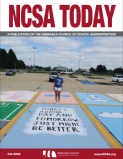Dr. Nichlas H. Dressel
Teacher attrition has been a growing concern in the United States for the past twenty years (Kelly et al., 2008). Teachers leave the profession for various reasons, including retirement, teacher burnout, stress, lack of support, and a desire to change schools or age groups (Berry et al., 2011). School issues related to the COVID-19 pandemic caused more veteran teachers to leave the profession and fueled a national teacher shortage crisis that could negatively impact students, teachers, and the public education system (Berry & Shield, 2017; Carver-Thomas et al., 2021; Podolsky et al., 2016). The existing body of research related to teacher recruitment was mainly conducted before the COVID-19 pandemic and focused on hard-to-staff urban settings and rural southern regions in the United States. Therefore, further exploration was needed to understand post-pandemic motivational factors that influence teachers to accept initial teaching positions in hard-to-staff rural school districts in Midwestern states.
This phenomenological study aimed to understand the essence of teacher motivation to accept teaching positions in hard-to-staff rural schools in one Midwestern state. Six participants were selected based on meeting the criteria of being a first or second-year teacher in a school located in FAR (Frontier and Remote) Level IV rural communities located in the western third of the Midwestern state selected for this study. Data was collected from participants through six semi-structured interviews that took place between October 2022 and April 2003. Four central themes emerged from the data analysis: (1) Sense of Connectedness, (2) Sense of Support, (3) Sense of Belonging, and (4) Sense of Purpose. The findings of this study are intended to support rural school administrators, post-secondary education departments, community organizations, and policymakers as they consider ways to combat the teacher shortage and recruit preservice teachers to accept positions in hard-to-staff rural school districts.























